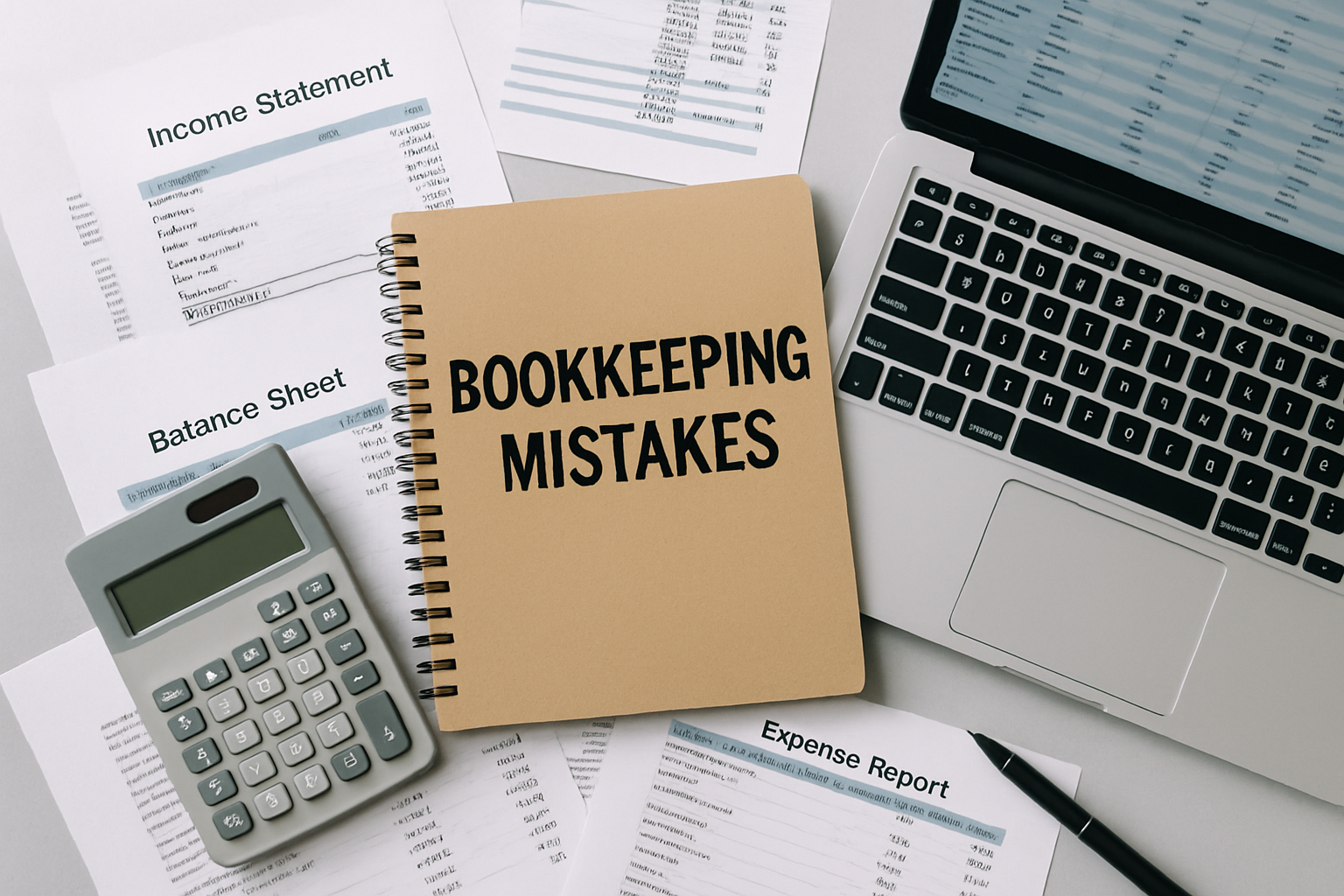5 Common Bookkeeping Mistakes New Business Owners Make (And How to Avoid Them)
Starting a small business is no small feat. Between juggling marketing, sales, and customer service, it’s easy to let one thing slip through the cracks: your bookkeeping. While the thought of tracking every penny might sound daunting, avoiding common bookkeeping mistakes will save you from a whole lot of stress down the road.
Whether you’re new to bookkeeping or just want to make sure you’re on the right track, this post will help you steer clear of the five most common mistakes business owners make and show you how to keep your finances on point from the start.
1. Mixing Personal and Business Finances
When you’re just starting, it can be tempting to pay for business expenses with your personal accounts (or vice versa). But doing this makes it hard to track your actual business income and expenses, and can lead to messy financial records come tax time.
How to Avoid It:
Open a separate business checking account right away. This keeps your business finances distinct from personal expenses, making it easier to track profits and deductions. You’ll thank yourself when it’s tax season!
2. Not Keeping Track of Receipts & Invoices
It’s easy to lose track of receipts, especially when you’re busy managing multiple tasks. But failing to document your business purchases can lead to missed tax deductions and inaccurate financial statements.
How to Avoid It:
Use a simple receipt tracking app like Expensify or Receipt Bank to keep everything organized digitally. Alternatively, take photos of your receipts and upload them into a folder on your phone, so you always have them on hand.
3. Forgetting to Reconcile Your Bank Statements
Bank reconciliation is the process of comparing your business’s records with your bank’s records. If you skip this step, you could miss discrepancies, fraud, or missed transactions that could throw off your financial reports.
How to Avoid It:
Set a reminder to reconcile your accounts every month. If you use accounting software like QuickBooks or Xero, these tools can automatically sync with your bank account, making reconciliation faster and easier.
4. Failing to Track Business Expenses
Many new business owners neglect to track all their expenses, especially when it comes to smaller costs like subscriptions, meals, or supplies. These small expenses add up over time and can affect your profit margins.
How to Avoid It:
Use accounting software that categorizes and tracks your expenses for you. Tools like FreshBooks or Wave allow you to input receipts and categorize them easily. Over time, you’ll build a better understanding of where your money is going.
5. Not Setting Aside Money for taxes
It’s easy to get caught up in the excitement of your business’s revenue and forget that a portion of it needs to be set aside for taxes. This can lead to a major headache when tax time comes around, especially if you owe more than you expected.
How to Avoid It:
Set up a separate tax savings account where you automatically transfer a percentage of your earnings each month. A good rule of thumb is to set aside 20-30% of your business income for taxes. If you’re unsure about how much to save, consult with a tax professional.
Final Thoughts
Starting a business is challenging, but managing your finances doesn’t have to be overwhelming. By avoiding these common bookkeeping mistakes, you’ll set yourself up for a smoother and more profitable journey. Take it one step at a time, and remember, your financial clarity is a powerful tool for success.



